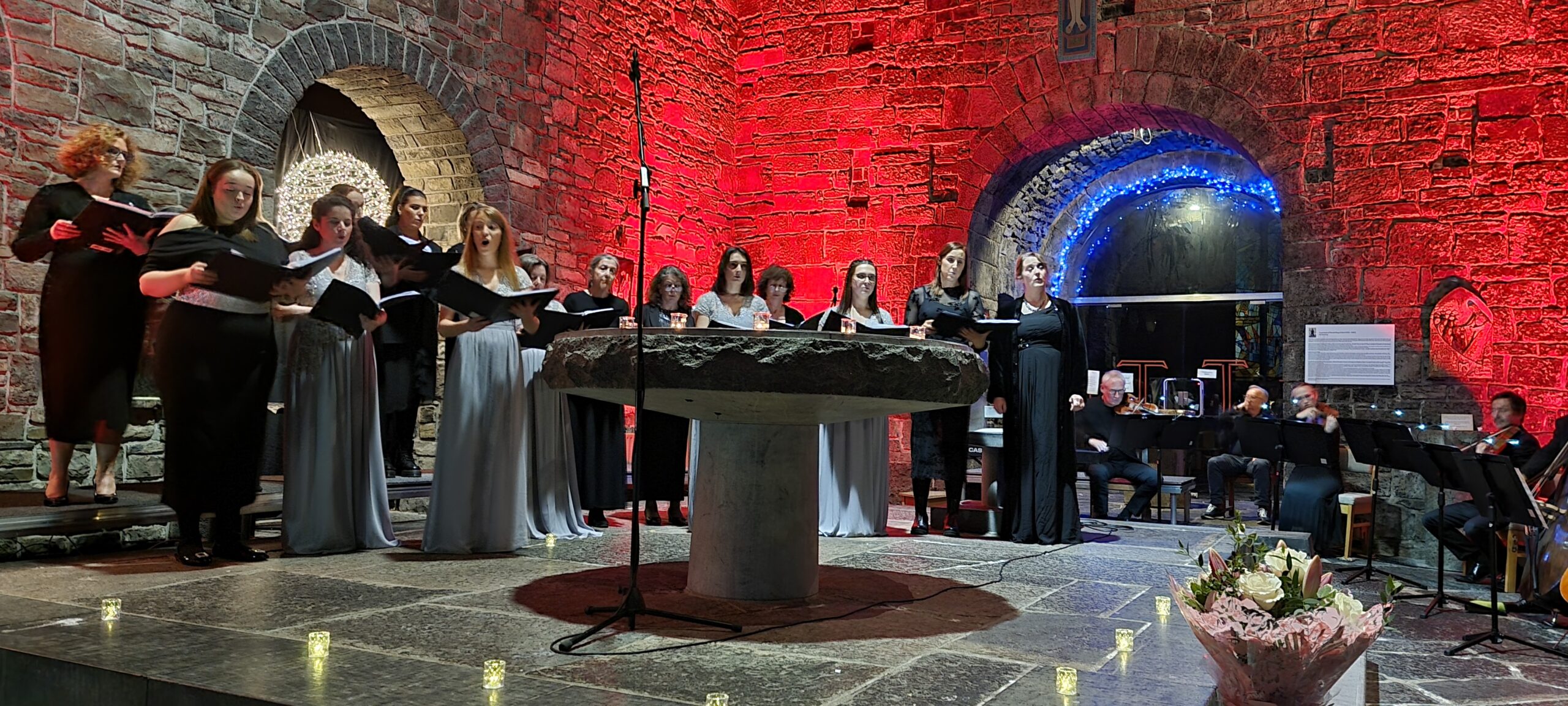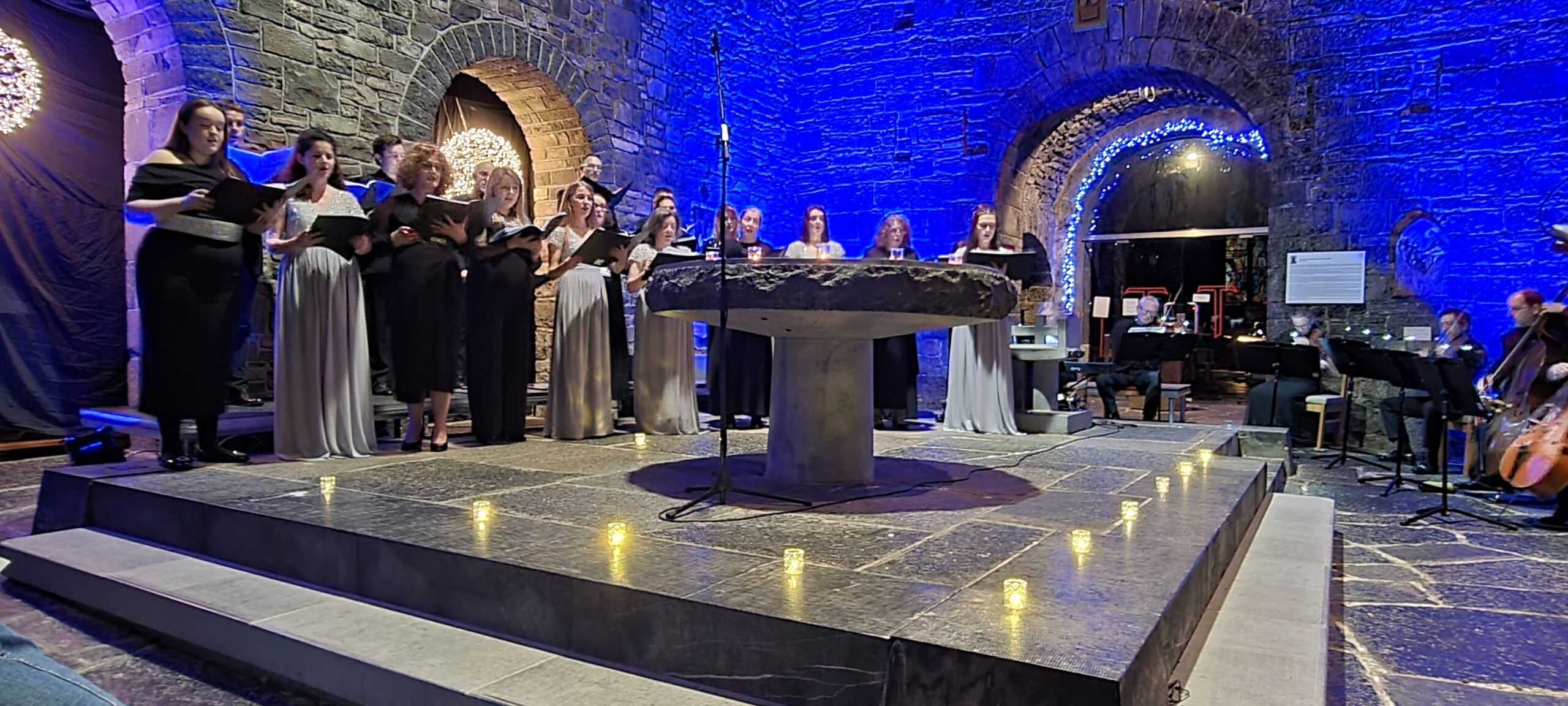Welcome / Fáilte Romhat!
The Franciscan Abbey in Multyfarnham was founded in 1268 and continues to be an active centre of Franciscan mission in Ireland. The only Franciscan Abbey in Ireland still standing on the footprint of its original foundation, the Franciscan fraternity continues its commitment of service from this special place.
Headlines
No Results Found
The page you requested could not be found. Try refining your search, or use the navigation above to locate the post.
Latest Updates
No Results Found
The page you requested could not be found. Try refining your search, or use the navigation above to locate the post.
News
Prayer of Spiritual Communion
Lord Jesus Christ, gracious healer of our bodies, minds, and souls, we thank you for the healing power that comes through our reception of you in Holy Communion. In our sometimes feverish lifestyle, when we get all hot and bothered, daily Mass assures us that you are...
About Safeguarding in Multyfarnham
Here in Multyfarnham, we greatly value the very many people who support our work and especially, the presence of those who visit, whether to attend Mass, avail of the sacrament of reconciliation (confession), to pray, to walk through our beautiful grounds, or for such...
From the desk of Fr Kieran OFM
Transfiguration – God’s divinity and its connection with His humanity
In his reflection this week, which was also his homily last Sunday, Fr Kieran invites us to think about the duality of Jesus, His humanity, and His divinity, and consider how the Transfiguration that we have just celebrated, fits in our understanding of Jesus as God and man.
For the Jewish people at the time of Jesus, the “scandal” was not the death of Jesus on the Cross – after all, the sight of criminals condemned to an horrific death on a cross was not an uncommon sight. However, to speak of resurrection, not at the end of time, (or for some, at all) was a concept for very many that might be considered scandalous.
Kieran weaves these two aspects of Jesus, His humanity and His divinity, and leads us to see this feast of the Transfiguration – Jesus in his divine state – as intrinsically linked with the human Jesus, whose death on the cross, a death that brought with it indescribable suffering and horror, as the divine expression of His love for us.
The Pardon of Assisi
On Tuesday and Wednesday of this week (August 1 and 2), we once again celebrated the Portiuncula, the Pardon of Assisi, here in Multyfarnham.
There is a huge tradition of this feast being observed in Multy; people come from far and near from the start of hte feast, at midday on August 1, until the closing Mass at 6:00pm on August 2. During that time, Mass was available every one and a half hours during the daytime, confessions were available throughout this time, and the Friary Office was open for people to make Mass offerings for the living and deceased.
In his reflection today, Fr Kieran tells us a litle more about this feast that is so important to Franciscans throughout the world. And in his reflection, he considers the idea of ‘home.’ Just as the Portuncula chapel was a dear and beloved home to St Francis, home is a place where we should always finds acceptance, even when not always accepted in other places.
As in the story of the Prodigal Son, coming home can be filled with unconditional forgiveness. And so it is with all of us when we seek the pardon of God. It is a loving embrace, when our Father wants only the best for each one of usAppreciating Grandparents
Love sits at the very centre of our faith and the Gospels themselves tell us that the greatest command of all is to love. Indeed, in St John’s Gospel, we are recognised as God’s children by how we love.
And isn’t it the case for most of us, especially those of us who know or knew our grandparents, that the overriding context of our relationship with them is on their expression of love? Fr Kieran, while reflecting on the Gospel for the Feast of Sts Joachim and Anne, observes that we hear much about parents and children in our readings at Mass but never about grandparents! We read of Joachim and Anne as the parents of Mary, the Mother of God, but not of Joachim and Anne, as the grandparents of Jesus.
Today, we are more aware of the extended family, parents, as well as uncles and aunts, and of grandparents, not least because we are all living a lot longer than in biblical times. And so, we encounter, in a deeper way, the intergenerational love that passes up and down from children and grandparents, much like the imagery of Jacob’s Ladder!
As Kieran suggests: “Ideally, each relationship should provide a firm stepping point as we climb higher and higher to approach God’s love at the very top.”
An Evening of Beautiful Music in the Friary
Some buildings lend themselves, naturally, to having good acoustics and the Friary church can count itself among those. And when music is played and sung here, the tones of the voices and of the played music combine with the very stones themselves to deliver a sound that cannot be replicated in any other place. In every sense, it is a unique experience, both for the artists and for their audience.

And so it was last Sunday evening when The Lynn Singers from Mullingar, the Irish Concert Orchestra Quintet, and Vocative, a small six-man group of singers visited us to perform their Winter Concert. An audience of just over 300 people were treated to a beautiful evening of perfect singing, and magnificent and uplifting music. The first half of the evening was given over to The Lynn Singers, Vocative and the ICO Quintet performing “Magnificat” from St Luke’s Gospel (LK 1:46-55). Few of us can say that we have not heard the amazing words of Mary’s prayerful response to the Angel sung. However, Sunday’s performance was one with which few would be familiar. In an arrangement by Kim André Arnesen, a young Norwegian classical composer from Trondheim in that country, the performance of “Magnificat” was quite simply, beautiful. How such a sound could be obtained from so few voices is a mystery and the individual performances were so perfect, that the soprano voices were like the voices of angels filling the Friary church. This arrangement was sung in Latin and while this might, at first, risk disconnecting the audience from the magnificence of the words, having the Latin and English, side-by-side on the back page of the accompanying programme, allowed us to engage with the prayer. A spectacular performance, with Musical Director, Dervilla Conlon skillfully encouraging every note and pause to deliver an impeccable performance.
This was followed by the ICO Quintet with a performance of three pieces, two by Arthur Duff (“Windy Gap” and, “Meath Pastoral”) before concluding with McAnanty’s Reel. Kenneth Rice led the quintet in a spirited uplifting, toe-tapping, rendition of this well-known reel and at times, it seemed that Robin Panter on Viola was going to step forward, put his viola down, and break into the reel itself. Joyful!

The evening concluded with three songs, again from the The Lynn Singers, with Vocative and the ICO. First, we had Moonset, by Don McDonald, a thoughtful piece, followed by Blackbird, a Lennon and McCartney icon to an arrangement by Kenneth Rice of the ICO Quintet, and the evening finished with a song that seldom fails to bring to mind old friends, the Parting Glass, again to a Kenneth Rice arrangement with Audrey Snyder.
Evenings such as this are as rare as they are special, and it will take a few weeks for the last echoes of music from the evening to fade away. It is evenings such as this that remind us of why the Friary church in Multyfarnham has a special place in the hearts of all of us.
T. Gerard Bennett
